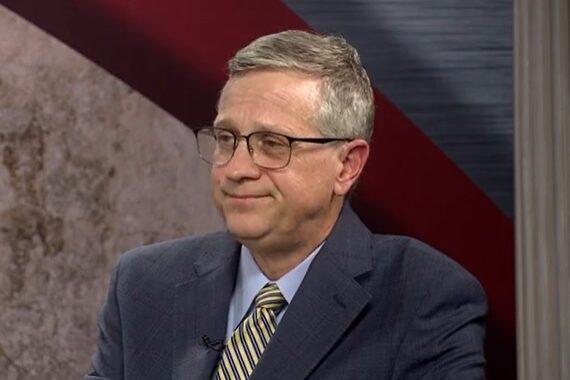Earlier this year, State Health Officer Dr. Scott Harris made inflammatory remarks about the state's transgender laws and the State of Alabama's unwillingness to embrace Medicaid expansion before an audience assembled at the University of Alabama at Birmingham.
Shortly after, Harris contacted lawmakers who took issue with his remarks. Harris blamed the messenger, who he said had taken his comments out of context despite audio showing he indeed said and meant what had been reported.
Despite the audio evidence, Harris continued his damage-control campaign while State Sen. Sam Givhan (R-Huntsville) revived an effort to make his post more accountable.
It has been more than three months since Harris made those remarks. However, he still blames the media, in part, for mistrust of the medical establishment and its guidance.
During an interview that aired on Friday's broadcast of Alabama Public Television's "Capitol Journal," Harris acknowledged skepticism of his agency's recommendations, including the COVID-19 vaccine, was still a problem.
"It certainly is a concern," he said. "There was a real loss of trust between the public and the people that they normally come to for advice about vaccines. We still hear some of that rhetoric going on now. The original COVID vaccines were fully FDA-approved within about six or seven months when they were released back in the summer of 2021, which is the same process with every vaccine we've ever taken ever. And yet, people just failed to trust it. That's still an issue."
However, when asked by "Capitol Journal" host Todd Stacy if there was something he would have done differently in hindsight to win more of the public's trust, he referenced a "democratization of press," suggesting that the mistrust was a product of media outlets critical of his agency.
"It was really clear that the messenger, in a lot of ways, was more important than the message," Harris said. "It was such a divided time during the pandemic, and people were really not sure who to trust. There was a lot of conflicting information. Because we were living in real-time, watching science evolve with this disease, the guidance changed, and because people hear that, they mistrust, and they wonder, 'Why? Were you lying to me last week because this week you're telling me something that is different?' And so, you know, those are things that you can expect. It made it really hard for people to know where to get good information."
"And we also kind of have this sort of democratization of press, if you will, so everybody can pull the news from exactly the person they want to get it from," he continued. "[Y]ou can be inside your own bubble if you will, and reinforce what you already think. And we had a hard time trying to figure out how to get through that. I would say we didn't do it that well in a lot of ways. I think what we have learned is it is really important to work on building trust first. And then, if and when you have an episode like this, people are more inclined to listen to you."
Jeff Poor is the editor in chief of 1819 News and host of "The Jeff Poor Show," heard Monday-Friday, 9 a.m.-noon on Mobile's FM Talk 106.5. To connect or comment, email jeff.poor@1819News.com or follow him on Twitter @jeff_poor.
Don't miss out! Subscribe to our newsletter and get our top stories every weekday morning.










